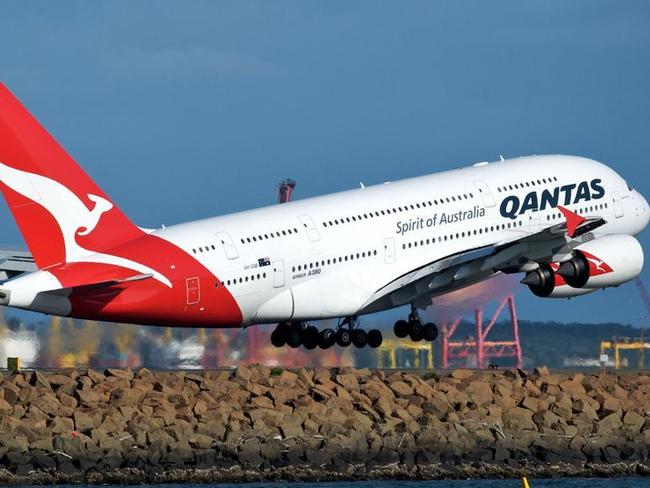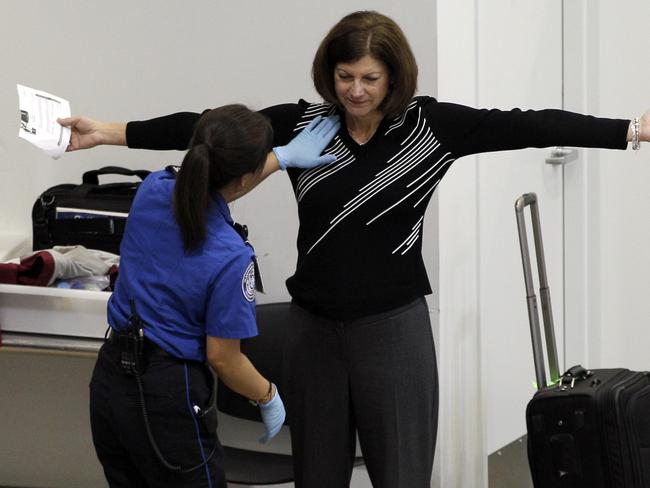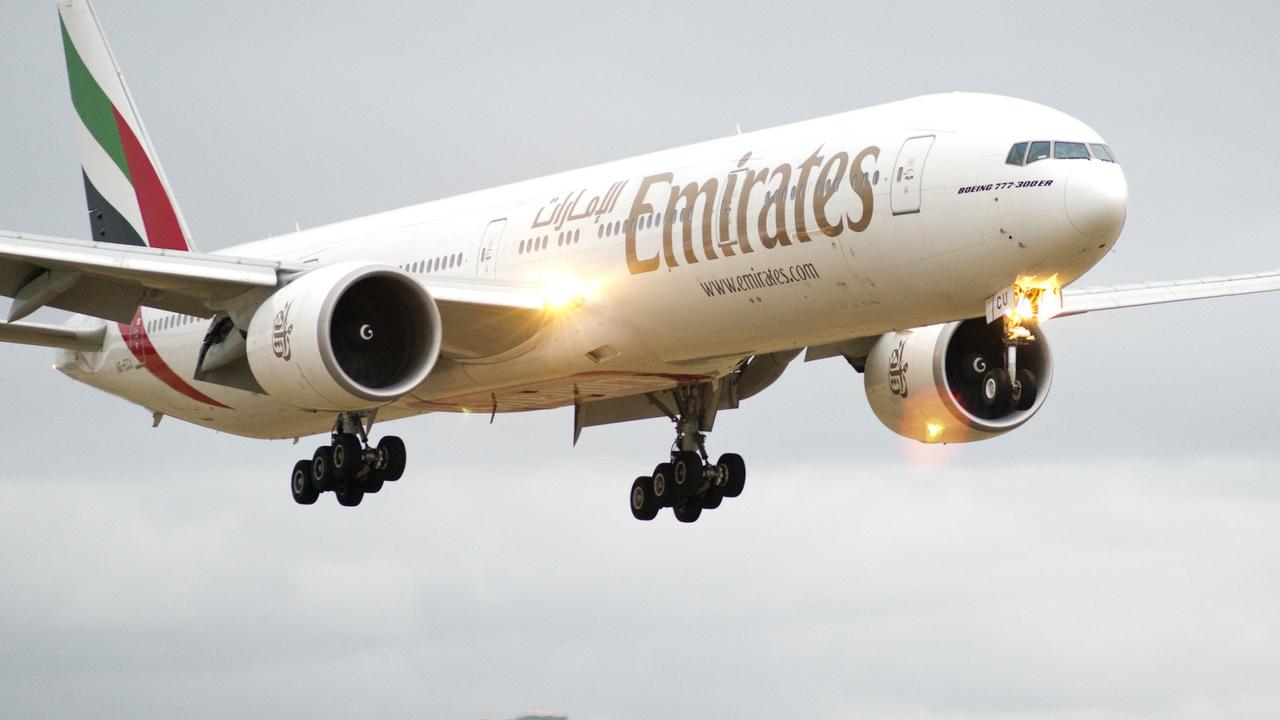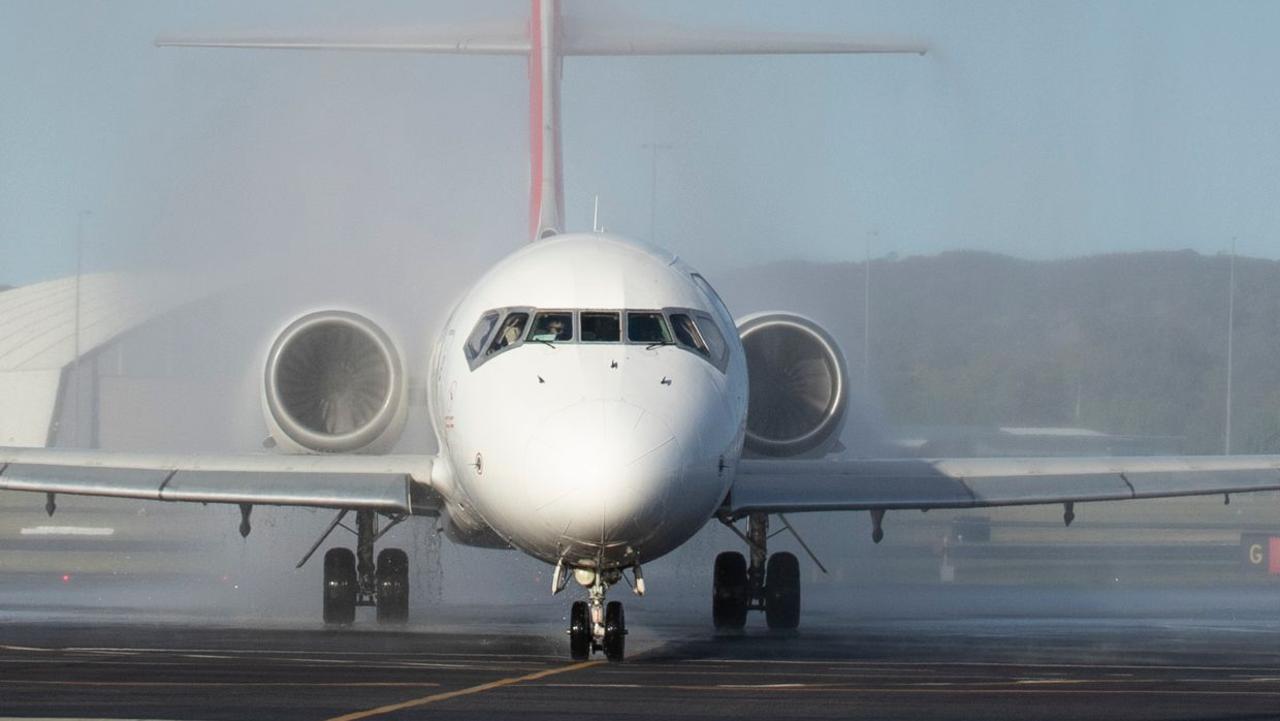New airport security rule means some passengers won’t be able to take their dead phones on planes
UNFORTUNATELY, you too could be forced to turn on your mobile phone or surrender it at the gate when you next travel. Here’s why.

ALL air passengers flying into or out of British and US airports must now ensure their phones and tablets are charged so they can prove to security staff the devices aren’t disguised bombs.
A spokesman for Federal Infrastructure Minister and Deputy Prime Minister Warren Truss today confirmed Australian airports won’t be implementing the new measure, which involves travellers being forced to turn on their mobile phones or surrender them at the gate.
However, those travelling to the US or UK through Europe, Africa and the Middle East will be impacted.
“The new security arrangements introduced by the United States and United Kingdom only apply to flights departing Europe, Africa and the Middle East travelling directly to the US and UK from July 8 and are temporary with an expiry date still to be set,” the spokesman said.
“The extra measures have been implemented due to concerns around a heightened terrorist threat to aviation for direct flights to the US and UK and mean that travellers departing these locations on US and UK bound flights may experience additional security screening either at the main security checkpoint or at their boarding gate.
“These measures may apply to passengers departing and transiting through affected airports, including Australian carriers — Qantas and Virgin Australia and their code share airlines.
“At this stage, the Australian Government is not requiring additional security measures for any international inbound or outbound flights to Australia and the National Public Terrorism Alert Level remains unchanged at MEDIUM.”
A spokesperson for Qantas told news.com.au yesterday that there would be no changes to screening for Australians visiting the US, for now.
“With respect to the US and UK government announcements reported in the media, Qantas has not received any requests to implement any additional security measures,” the spokesperson said.
This may change in the future.

So what is this new measure about?
It was announced that passengers at some overseas airports offering US-bound flights will soon be required to power on their electronic devices in order to board their flights — a measure intended to enhance aviation security at a time when intelligence officials are concerned about hidden explosives, a US counterterrorism official said.
If it doesn’t turn on, they’ll be forced to hand it over.
American intelligence officials have been concerned about new al-Qaeda efforts to produce a bomb that would go undetected through airport security. There is no indication that such a bomb has been created or that there’s a specific threat to the US, but intelligence has suggested that al-Qaeda and like-minded groups are focused on perfecting an explosive that could be hidden in shoes, electronics or cosmetics, said the official who spoke on condition of anonymity.
The Transportation Security Administration (TSA) said it is adding the requirement that passengers coming to the US from some airports must turn on devices such as mobile phones before boarding. It says devices that won’t power up won’t be allowed on planes and those travellers may have to undergo additional screening.
Turning on an electronic device can show a screener that the laptop or mobile phone, for instance, is a working device and that the batteries are used for operating that device and are not hidden explosives.
“As the travelling public knows, all electronic devices are screened by security officers,” the TSA said.
Homeland Security Secretary Jeh Johnson recently ordered the TSA to call for extra security measures at some international airports with direct flights to the United States. TSA does not conduct screening abroad, but has the ability to set screening criteria and processes for flights flying to the US from abroad, according to a Homeland Security Department official, who was not allowed to discuss the changes publicly and spoke on condition of anonymity.
The TSA will not disclose which airports will be conducting the additional screening. Industry data show that more than 250 foreign airports offer non-stop service to the US.
Heathrow, Europe’s busiest airport, has told passengers that they might not be allowed to take electronic devices onto planes if they could not be switched on.
It posted a security update on its website telling passengers, “If you are flying to the US please make sure any of your electronic devices are charged before you travel”.

British Airways also issued an update for passengers flying from Britain to the US “Customers may be asked to turn on any electronic or battery-powered devices such as telephones, tablets, e-books and laptops in front of security teams and/or demonstrate the item’s functionality,” the update said. “If, when asked to do so, you are unable to demonstrate that your device has power you will not be allowed to fly on your planned service.”
Aviation remains an attractive target to global terrorists, who are consistently looking for ways to circumvent airport security measures, the DHS official said. Some details on specific enhancements and locations are sensitive because US officials do not want to give information “to those who would do us harm,” the official said.

American intelligence officials said earlier this week that they have picked up indications that bomb makers from Yemen-based al-Qaeda in the Arabian Peninsula have travelled to Syria to link up with the al-Qaeda affiliate there.
al-Qaeda in the Arabian Peninsula long has been fixated on bringing down aeroplanes with hidden explosives. It was behind failed and thwarted plots involving suicide bombers with explosives designed to be hidden inside underwear and explosives secreted inside printer cartridges shipped on cargo planes.
Over the past year, Americans and others from the West have travelled to Syria to join the fight against the Syrian government. The fear is that a fighter with a US or other Western passport, who therefore may be subject to less stringent security screening, could carry such a bomb onto an American plane.
— With wires.



